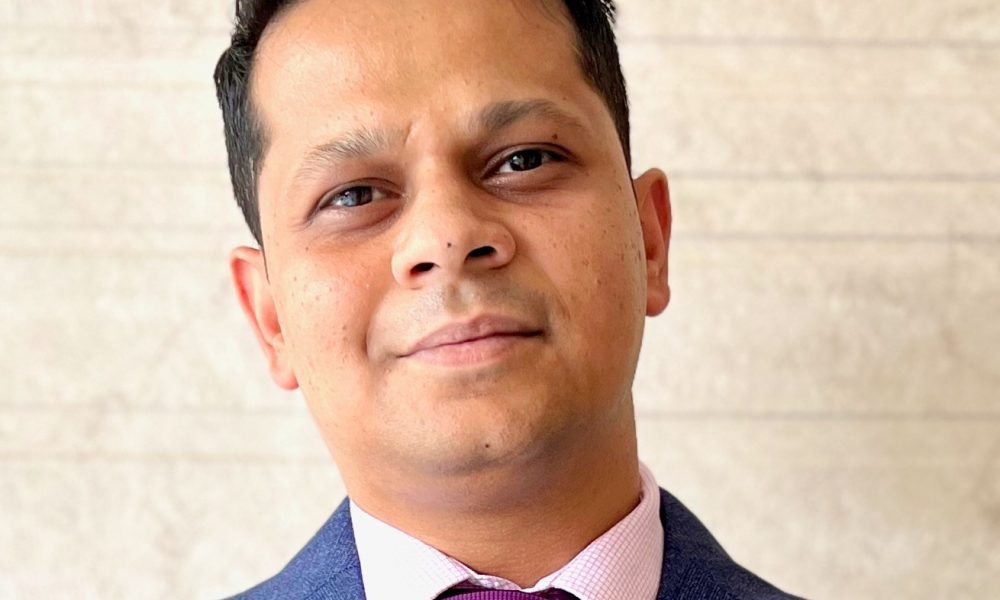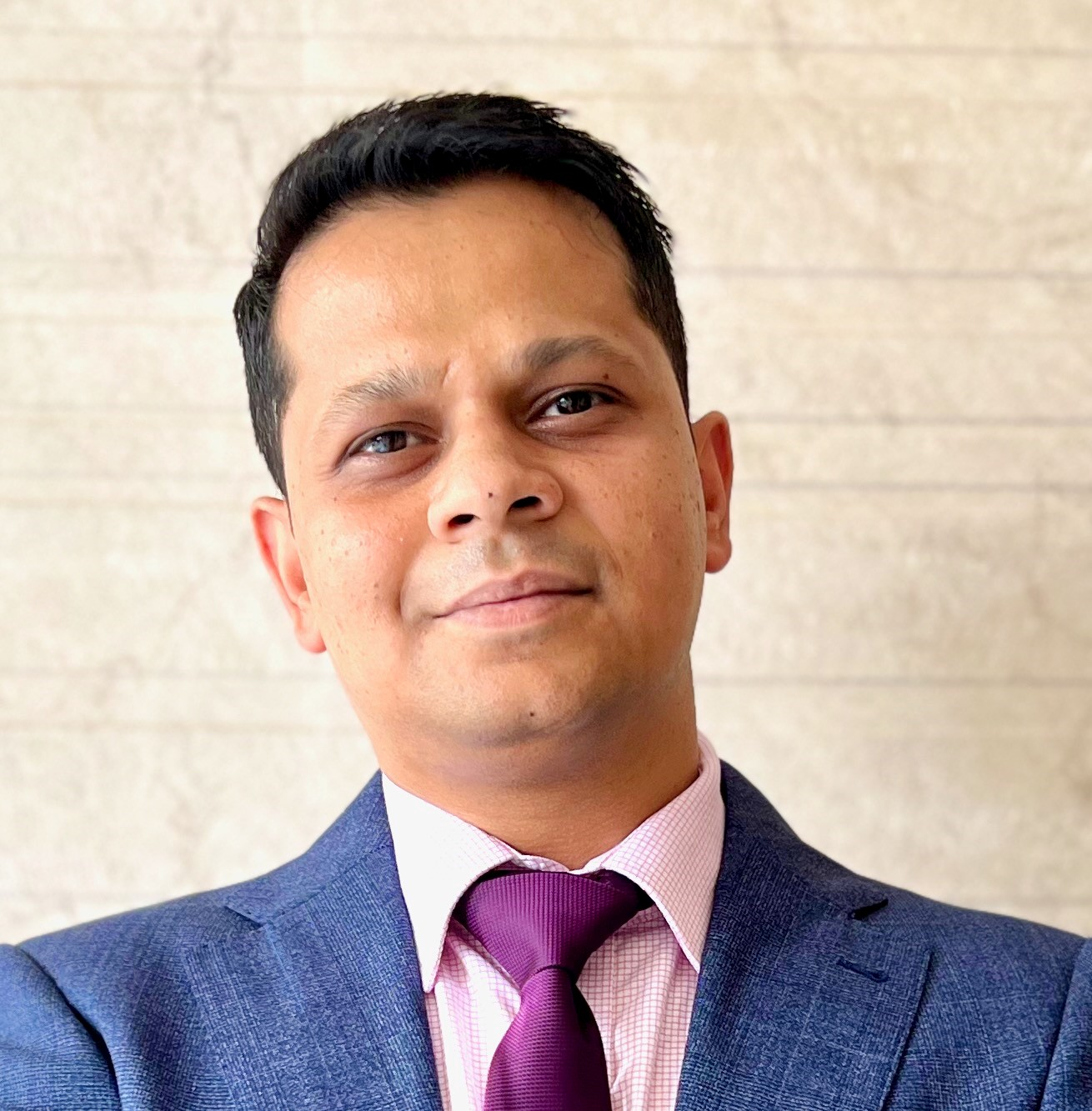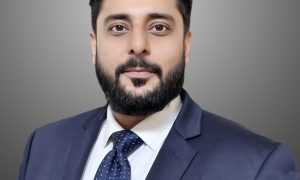This interview has been published by Priyanka Karwa and The SuperLawyer Team

To start this conversation, please tell us your motivation behind pursuing law.
I am from that era when engineering or medicine were the preferred career choices. Hailing from Kharagpur, with the IIT KGP – a stone throw away – the expectation was that I would sit for the JEE. However, it was a chance discussion before the Class 12 board examination with a friend who wanted to pursue law as a career option that piqued my interest in the field.
From there, I started my internet research and mind you, at that time around 2004, there were only a handful of National Law Schools (five to be precise). I narrowed down on NUJS, Kolkata and NLSIU, Bangalore. As compared to now, there was not much information available online or offline regarding career options after graduating or even what to expect in the 5 years that I was going to devote in studying and hopefully enjoying my university life. Having decided to become a first-generation lawyer, I took the plunge and appeared for the NUJS entrance test in January 2004 and then the NLSIU test over the summer. To my surprise, I made it to NUJS and the result filtered in just prior to writing my final paper of the ISC (Class 12) board examination. There has been no turning back since then.
You have extensive experience in international and domestic arbitration, WTO dispute settlement, and commercial litigation. Could you tell us about a case that you found particularly challenging and how you managed to resolve it?
To my mind, the best part of being a disputes lawyer is the wide array of dispute related work that I have done over the years. Whether it is litigation or arbitration or WTO dispute settlement or investor-state dispute, I can safely say that the core premises more or less remain the same.
That said, if I have to choose one challenging case that I have worked on in the last 14 years, it has to be an arbitration dispute where I had a tough ask to resist the enforcement of a foreign award rendered in Singapore in an international commercial arbitration from being enforced in India. The client having failed in getting the award set aside in Singapore (which was the seat of the arbitration and whose courts had jurisdiction in setting side proceedings) wanted to contest the enforcement petition filed before the Delhi High Court. I had to work with very limited grounds as Part II of the Arbitration & Conciliation Act, 1996 does not provide a wide latitude when it comes to opposing the enforcement of a foreign award. Nonetheless, basis research on the party who had filed for enforcement, some novel arguments on contravention of public policy were formulated and advanced as that party’s (i.e., the claimant in this case) name had been struck of the register of companies by the Registrar prior to the filing of the enforcement petition. In other words, the argument was that an enforcement petition could not have been filed by a non-existent entity and granting enforcement would be contrary to the public policy of India. This is turn led that party to file an application for restoration of the name of the company in which my client filed an application as an intervenor. Eventually, with all the lawyering and proceedings, both the parties opened talks with a view to negotiate a settlement.
What are some common misconceptions people have about international commercial arbitration? How would you address these misconceptions?
Arbitration as a mode of dispute settlement has been well received since the days of the Alabama arbitration in 1872. I don’t think there are many disagreements as to the value and efficacy of the process given the amount of party autonomy that is vested and from the fact that a wide variety of disputes (commercial, investment, trade, maritime, etc.) have been resolved using arbitration.
That said, no dispute settlement mechanism is free from problems or misconceptions that surround them, and international commercial arbitration has not been immune from that. To my mind, the most common recent criticism or misconception (if I may equate the two) concerns the costs of running with an arbitration. From the arbitrators fees to counsel fees to institution fees, it is true that there has been an uptick in the cost that a party has to bear in choosing to arbitrate a dispute. However, I believe that the cost aspect is often offset by the efficiency of the process which can lead to an arbitral award in a much shorter time frame compared to national court proceedings. Second, “well managing” an arbitration is partly in the hands of the parties and their counsels, and this can bring down costs, for example, agreeing and respecting timelines, having a document only arbitration when the claims are simple and evidence is not required, etc.
Another common misconception is that a party nominated arbitrator means you have someone on your side. The fact that arbitrators, whether it is the presiding arbitrator or the party nominees, have to be impartial and neutral is the bedrock of arbitration and to expect anything to the contrary is equivalent to discrediting the process itself.
Lastly, the so-called “standard” arbitration clauses from the past are fast losing their relevance. With the blinding evolution of the laws and processes in international commercial arbitration, having a tailor-made arbitration clause in a contract/agreement that is being negotiated is a must to not only safeguard a party’s right but also add to the efficiency of the process when a dispute materialises later from the performance or non-performance of that contract/agreement.
You have worked with the WTO as a Dispute Settlement Lawyer in the Appellate Body Secretariat. Could you explain to us the role of the Appellate Body and how it works within the WTO dispute settlement system?
The World Trade Organization (WTO), as many of the readers may know, is an intergovernmental organization based in Geneva, Switzerland that was established in 1995 and deals with rules of global trade. While one function of the WTO is to negotiate new rules on global trade, the other main function is to resolve disputes between Member States arising from the interpretation and application of the WTO treaties.
In a first of its kind in the international arena, dispute settlement at the WTO was designed as a two-tiered system. To begin with, if a dispute is not resolved amicably in consultations, a panel of experts (simply called a panel) then decides the dispute that is brought by one WTO Member against another WTO Member alleging that the latter has violated or acted inconsistently with the treaty obligations it took upon itself. A panel issues a ruling which is called the Panel Report. The losing WTO Member has the right to appeal a Panel Report to a standing body of 7 experts who comprise the Appellate Body which at the time of its creation was termed as the jewel in the crown of the WTO. Each Appellate Body Member is appointed for an initial term of 4 years and can be extended for a second 4-year term.
The Appellate Body is therefore the final arbiter of disputes between WTO Member States and hands down decisions that are binding upon the litigants. The Appellate Body has the power to consider questions of law raised in an appeal and then to uphold or reverse or modify the panel’s ruling. Each appeal before the Appellate Body is handled by a division of 3 Appellate Body Members in accordance with the timelines prescribed in the WTO Dispute Settlement Understanding. The Appellate Body Members are ably assisted by the Appellate Body Secretariat comprised of lawyers and support staff.
However, since late 2019, the Appellate Body is no longer functional owing to the United States blocking the appointment of Appellate Body Members. Talks are continuing in Geneva on how to resolve this crisis that requires consensus of all WTO Member States. In the meantime, for those who are wondering as to what is happening to any appeal that is filed, sadly panel reports that have been appealed since 2020 are lying still without any adjudication.
You are skilled in providing input into policy framing, strategic planning, and decision making. What are some of the challenges you have faced when advising clients on these matters?
Much of it depends on who the client is. For instance, when the client is a sovereign government, the considerations and challenges are slightly different. In advising Ministers and policy officials who may want a particular policy to be in place, one has to carefully balance articulating the magnitude of legal risk in having such a policy and what could happen if the policy was to be successfully challenged. In such instances, while there may be commercial considerations, the other important consideration is to carefully consider the larger public interest as well reputational risks in having such a policy in place. Thus, there is an inherent balancing act that a lawyer has to perform between, on the one hand legal risks and, on the other, the policy rationale.
When I have to do the same for a private client, commercial and reputational considerations become the key. And then I have to be upfront about the uncertainty of what may result from litigating/arbitrating a matter vis-à-vis costs of pursuing it, commercially as well as reputation wise. Let me give you an example, while arbitrating a dispute can result in an award relatively quickly, one has to also consider how best to enforce that award, where to enforce that award and how long will that process take. When such considerations are put forth before clients, they appreciate and take that on board and more often than not involve the layer in making a final decision.
You have a Master of Laws (LL.M) in International Dispute Settlement. What inspired you to pursue this field of study, and how has it influenced your career?
From my early days in NUJS, I was pretty certain that I wanted to be a disputes lawyer. So, when I started out with the dispute resolution team at the erstwhile Amarchand & Mangaldas in 2009, I was exposed to a wide variety of proceedings before different forums – from the Supreme Court to district courts, from arbitration to mediation sessions, criminal proceedings, etc. And these varied experiences set off a spark in me to explore the field of international dispute settlement, like proceedings before the International Court of Justice (ICJ), state-to-state dispute settlement at the WTO, investment treaty arbitrations, etc.
Thus, the MIDS or the LL.M. in International Dispute Settlement offered jointly by the University of Geneva and Graduate Institute of International and Development Studies became the natural choice given the stellar teaching cast and its location in the heart of the practice of international law and diplomacy.
Be it public or private international law, MIDS provided me with an unparalleled experience in the field of international disputes. The MIDS was pivotal in my subsequent journey as an international disputes lawyer. It provided me with the platform to pursue an internship with the Appellate Body Secretariat which later materialised into a full-time position as a dispute settlement lawyer. My time at the Appellate Body Secretariat was thoroughly exciting given the types and kinds of disputes that came up for consideration at the WTO in addition to the lifelong friends I made while working there. The WTO stint in turn set me up for a position with the UK Government in London to work on UK’s international disputes engagements prior to my return to India where I am currently a Partner in Luthra and Luthra’s dispute resolution practice.
Lastly, what advice would you give to young lawyers interested in pursuing a career in international trade law and dispute resolution?
From my experience thus far, I can perhaps offer a couple of insights: first, do try and pursue higher studies from an institution and subject of your liking whether it is in the United States, the UK or mainland Europe or anywhere for that matter. I found my year of reading the LL.M. to be fulfilling not only in terms of what I learnt but also in terms of meeting new people, making new friends and getting to know different cultures especially when batchmates come from across the globe.
The second piece of insight I have to offer to young lawyers is not to super specialise early on in your legal career. If somebody is interested in dispute resolution, try working on as many aspects of it that you can i.e., do court litigation, do an ad hoc arbitration, do an institutional arbitration, try your hand at tribunal litigation (for example before the CESTAT, NCLT) and better still work on a criminal law matter before the trial courts. Take my case, over the years, I have been lucky do all of the above and that’s why I always consider myself to be a generalist disputes lawyer which I believe has helped me tremendously in the varying roles that I have taken up the last 14 years.
Get in touch with Tamal Mandal-


























